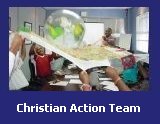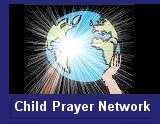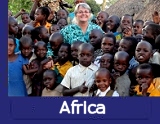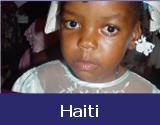 |
Contact usUnited Caribbean TrustCounterpartCBETConservation - landIn memory ofConservation - sea
Endangered species |
home >> caribbean
>>counterparts>> CARIBBEAN - conservation permission to use information from http://www.counterpart.org WE ARE IN A RAPIDLY CHANGING WORLD. For almost 40 years now, our organization has worked with local people, helping them take responsibility for their own well-being. We have a unique range of experience, overwhelmingly successful. Because our development “technology” of “smart partnership,” is about helping people and communities to help themselves, our methods work equally well on small islands trying to preserve their beaches, reefs and cultures against the encroaching modern world, and in post-industrial cities clustered around closed and rusting factories. We help people make rational choices, to direct change the way they want it, rather than the way outsiders think best. True to our name, we identify counterparts, communities, companies and governments, across the globe, who can build lasting ties and work together to make things better for all of us. Our partners, all over the world, make us different. We don’t even pretend to know it all — but in each location, we know people who do. In the new Millennium, the world has changed drastically, and our approach is needed more than ever before. Between us, the peoples of the world have the ability, the wealth and the tools to enrich life for everybody. However, while some countries are indeed richer, more secure and better informed than ever before, the last decade of the old Millennium saw some countries afflicted with war, economic crises, natural disasters and hunger on an unprecedented scale. In more and more of these places, Counterpart has its own staff working with enthusiastic local partners, with governments and other international agencies to help people help themselves. In the islands of the Pacific and the Caribbean, the jungles of MesoAmerica, in Africa, in South America, in the sub Continent and in Central Asia, our network provides hope, help and expertise to bootstrap development. We are involved in schools, in hospitals, in businesses, in markets, in developing tourist industries that benefit the locals, in rebuilding communities atomized by political and economic change. We help them tap into networks of information and experience that can assist their development. In some places, we work with groups of people who have barely left the Stone Age, and in others where governments used to do almost everything, but have now moved out of whole areas of people’s lives. Indeed, in some places we work, governments have disappeared completely leaving chaos in their wake. We know from our long experience that even after decades of repression or breakdown, local communities have an in-built strength to recover rapidly with just a little help from the outside to tap their own resources. They can identify their needs and organize themselves to meet them. That is why, for us, communication is a key development tool connecting communities. It provides access to the rest of the world, because the Internet offers access to global markets and global knowledge. The Net levels the playing field because access to world markets lowers geographical isolation as a barrier to development. It shows where help is, and how to move it, but it also encourages those who can help to match up with the needs of others. We apply the dynamism and efficiency of the best of the private sector so that the world can profit from our development technology. "“We are recognized for building bridges across cultures, sectors and communities."
|


 

 |
| Copyright © 2022 www.UnitedCaribbean.com. All rights reserved. Disclaimer Click to Contact us |